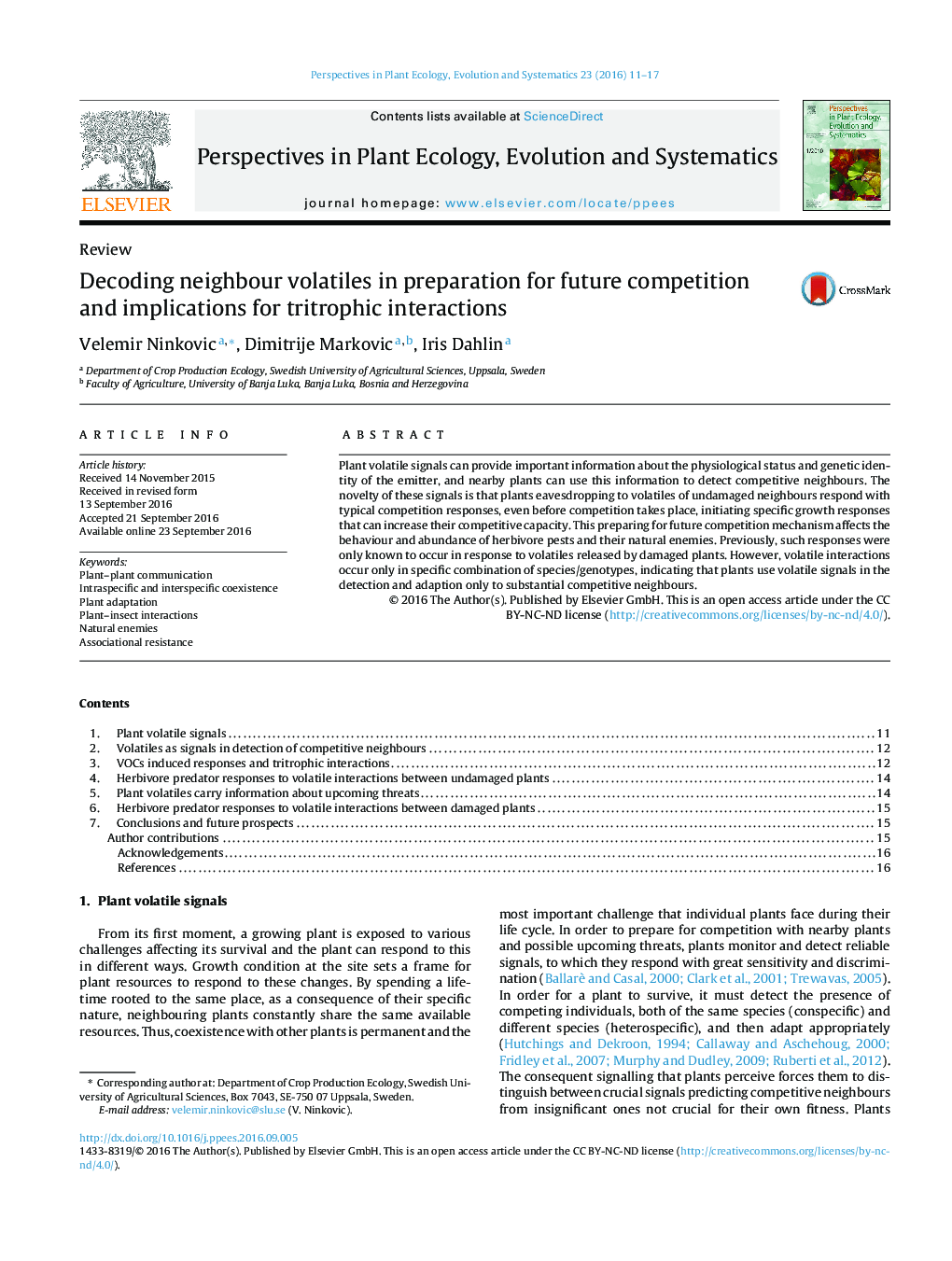| Article ID | Journal | Published Year | Pages | File Type |
|---|---|---|---|---|
| 6305704 | Perspectives in Plant Ecology, Evolution and Systematics | 2016 | 7 Pages |
â¢Plants use volatile signals from undamaged neighbours to monitor and predict existence of potential competitors.â¢The signals may induce adaptive physiological responses even before competition starts.â¢The plant responses may affect the behaviour and abundance of insects.â¢Only volatiles from damaged plants were previously known to induce such responses.
Plant volatile signals can provide important information about the physiological status and genetic identity of the emitter, and nearby plants can use this information to detect competitive neighbours. The novelty of these signals is that plants eavesdropping to volatiles of undamaged neighbours respond with typical competition responses, even before competition takes place, initiating specific growth responses that can increase their competitive capacity. This preparing for future competition mechanism affects the behaviour and abundance of herbivore pests and their natural enemies. Previously, such responses were only known to occur in response to volatiles released by damaged plants. However, volatile interactions occur only in specific combination of species/genotypes, indicating that plants use volatile signals in the detection and adaption only to substantial competitive neighbours.
